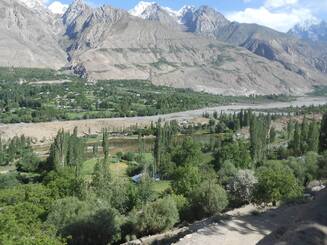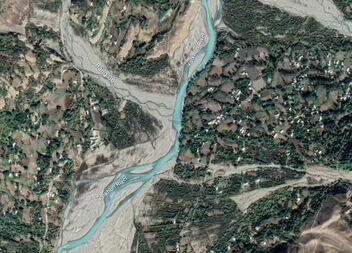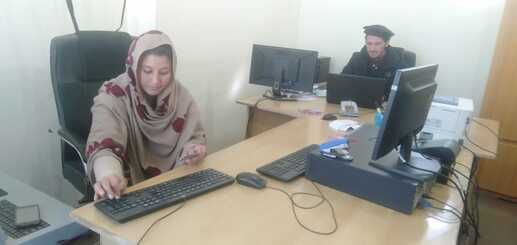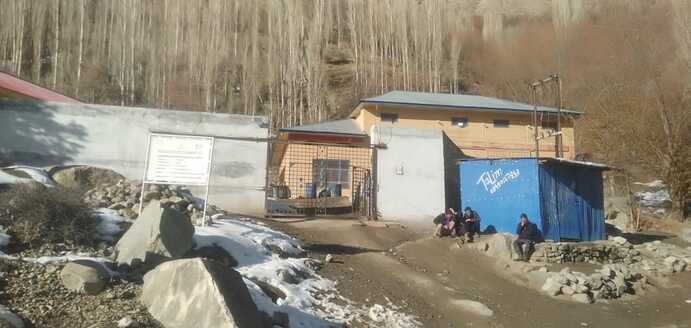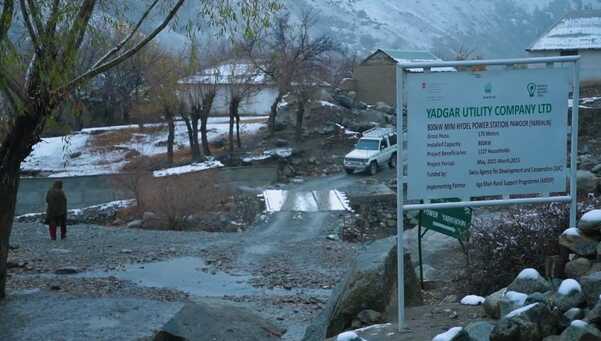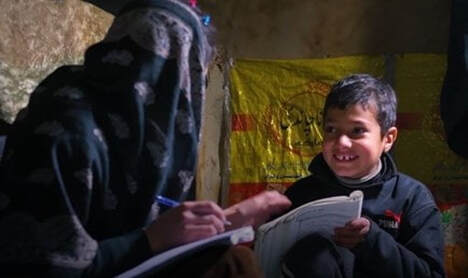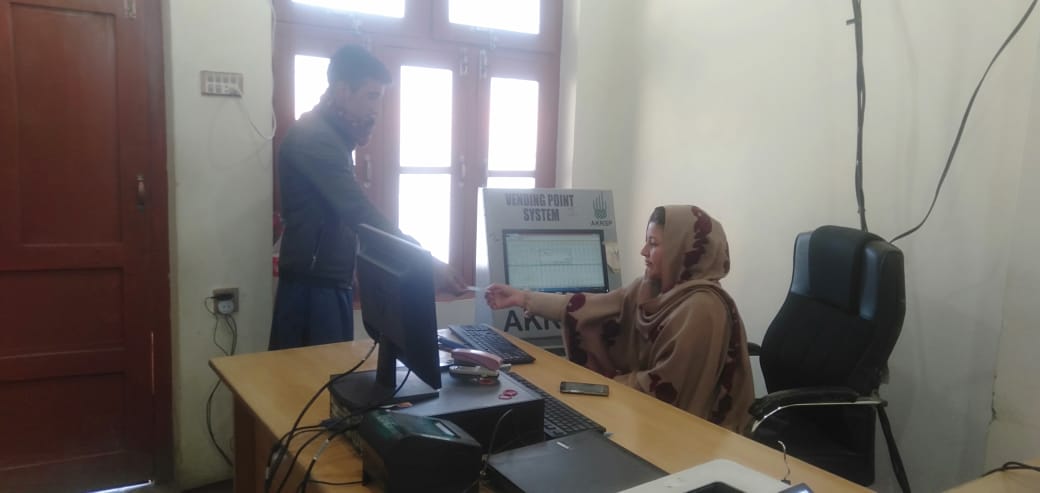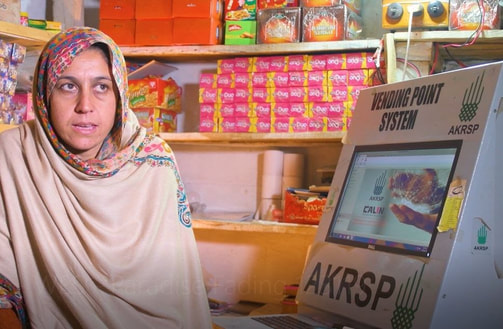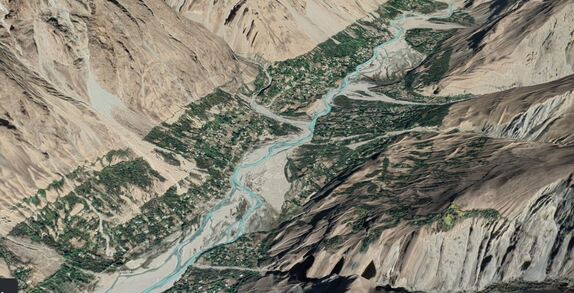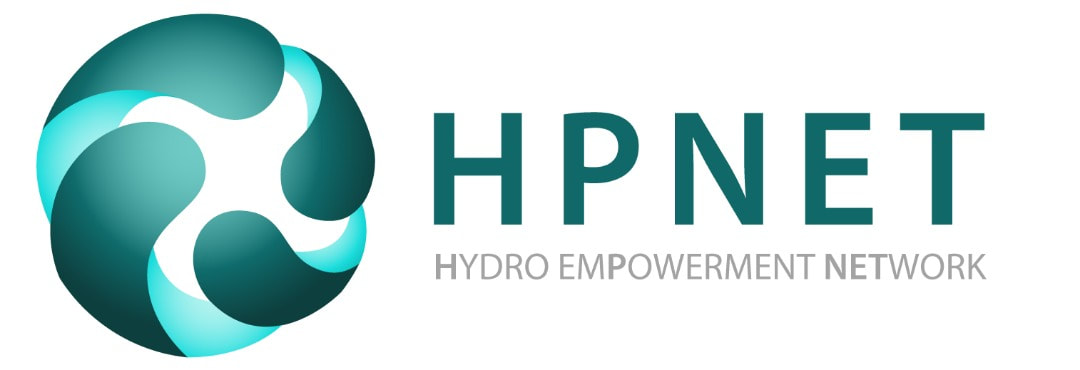Hasana is a local hero amidst the most isolated and remote valley of Chitral, Pakistan. Her journey is embedded in the thriving community-based and women share-holding models that have transformed micro and mini hydropower (MH) development across the most inaccessible, yet the most beautiful valleys across Pakistan. This approach to MH has been developed by the Aga Khan Rural Support Programme (AKRSP) as a part of its community-owned utilities initiative.
Special thanks goes out to our Board member Meherban Khan, AKRSP's Coordinator for Utility Companies, for helping to make this interview possible.
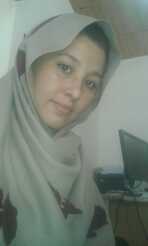 Hasana Fatimi. Credit: H.Fatimi
Hasana Fatimi. Credit: H.Fatimi I am Hasana Fatimi. I belong to a small village of 200 households called Bang, located in Yarkhun Valley, of Upper Chitral District in Pakistan. I am one of the few women in this valley and the only female in my family with a master’s degree.
Currently, I work as a sales officer in the Yadgar Utility Public Limited Company, our community-owned utility that supplies electricity to 1200 households (in 24 villages, including Bang) using electricity generated from a 800kW mini hydro system. I’ve been working here for the last three years.
How did your education, i.e. master’s degree, help you in your professional life?
We belong to a very isolated area in the northern part of ChitraI. I enrolled in Abdul Wali Khan University in Chitral for the master’s program and graduated in 2017. My village and the university were 150 km apart, connected through a broken road, and hence I lived at my relatives place which was close to the university. The knowledge gained during my university life has helped me immensely in my professional career.
In this valley, women haven’t had a lot of opportunities to work and contribute to their household. After completing my education, I started my career as a teacher in a private school but that felt insufficient, as I wanted to do something for the women in this area. I then decided to be an entrepreneur, as I always wanted to be an inspiration for the women in my region. I wanted to show them that everything is possible, to dream big and to aspire for more meaningful things in life.
Aga Khan Rural Support Programme (AKRSP) has formed and mobilized village organizations that are led by both men and women. They are combined to form a cluster known as Community Organization (CO) of which all men and women of the village can become a member. The CO put in a request to AKRSP for a 800 kW mini hydro plant. Before that they had a 50 kW and 100 kW plant constructed by AKRSP, which were only used for lightning purposes and didn’t equip us in cooking or business ventures.
How is AKRSP facilitating mini hydro efforts in Yarkhun valley?
AKRSP is a community-based development organization. It is focused on integrated rural development in Gilgit Baltistan and Chitral (GBC) region of Northern Pakistan.The Water and Energy Security (WES), funded by Swiss Agency for Development and Cooperation (SDC) and implemented by AKRSP, is the program that supports mini hydro development in this valley.
AKRSP, the implementing partner for our mini hydro project, had prior experience of establishing over 200 micro hydro plants and thousands of water development projects that were operated by local communities. The project was framed to transform the traditional community-based approach to manage small scale micro hydro, into modern utility companies. The project followed an ambitious, market-based financing plan, raising 20% equity, 50% donor funding (i.e. SDC), and 30% bank loan to be offset later from the carbon income [yet to materialize] and tariff collection.
AKRSP supported the construction, operational phase, and funding for our mini hydro project. They invested and made us shareholders for the sustainability of the project. Until the project becomes self-sustainable, AKRSP supports us with the maintenance and running costs of the plant.
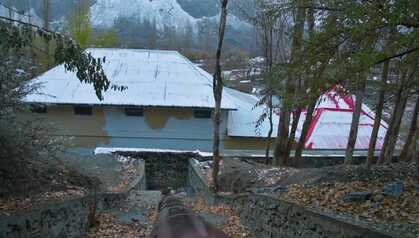 Penstock and powerhouse of the Yadgar Utility Company's mini hydro system. Credit: AKRSP
Penstock and powerhouse of the Yadgar Utility Company's mini hydro system. Credit: AKRSP
How did the local community become involved in the mini hydro project?
We underwent the usual protocol of AKRSP, which consisted of dialogues, in which the communities established the need for electricity and the willingness to engage in a micro hydro project. The communities contributed in the construction, and eventually they became shareholders and now they are the owners in this venture. The project started around 2012, but due to financial constraints, it was delayed till 2015. It was a hybrid model of financing. Initially, it entailed a grant, followed by obtaining a loan, and ultimately it was sustained by investment from the community, who eventually became the shareholders in the project.
The money that is usually collected through community mobilization for the formation of a maintenance fund, was later on transformed into equity. The initial minimum contribution per household was fixed around PKR 6000 to contribute to maintenance funds. The minimum contributions were set by AKRSP at PKR 10 Million for the community as a maintenance fund or community contribution for the project, which is an equivalent of approximately 5% of the project cost. With the transformation of the unit into public limited companies, the initial investments/contribution of the community members were converted into shares and transferred to individual persons as share capital. The value of 1 share was set at PKR 100. Furthermore, the minimum investments were reduced to PKR 1500 for women, so that the women members of the community could also participate as shareholders/members of the company.
How many women are involved in this project and what is their background?
More than 400 women are shareholders in this mini hydro project. A small portion of the women are educated and most of them are housewives, but many of them have started their own businesses at household level. In this mini hydro project, we have obtained a loan and our sales are not high enough to meet the loan repayment, given the high operational and maintenance costs. But we are moving in the right direction and by 2023, we will hopefully repay the entire loan and then the company will receive profits, and we will receive shareholder dividends.
What was it like for the women in the area before the mini hydro project?
We had everything in terms of natural resources, but we didn't have electricity to ensure basic facilities and sustainable development in the valley. There were no diesel generators and everyone used kerosene lamps.
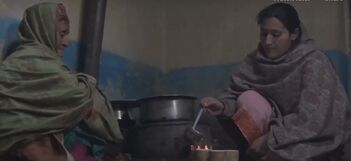 Women cooking using kerosene lamps. Credit: AKRSP
Women cooking using kerosene lamps. Credit: AKRSP We would spend most of our time gathering fodder for the livestock, fetching fuelwood for heating purposes, and using indigenous techniques for threshing grains, which was very tough and time-consuming.
According to you, what has been the overall impact of the mini hydro project in Bang village?
Bang village consists of 200 households and the mini hydro plant is 7 km away from the households. Community-based hydro has been operational here since 1995 when AKRSP first constructed the 50 kW micro hydro system, but it only fulfilled the basic needs of lighting for the households across the valley. So there were various restrictions in place for using electric appliances such as rods, heaters, rice cookers, and ovens, which didn’t fulfill our basic needs.
After the completion of the 800 kW mini hydro project, the majority of households started using electric appliances for cooking meals, chapati, tea making and heating purposes. This has not only resulted in increased output and productivity, but has also helped us to focus on our children because it saves us time and energy.
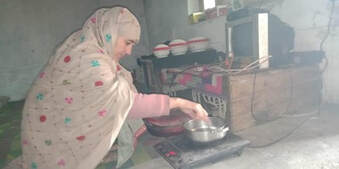 Woman cooking using electric stove. Credit: AKRSP
Woman cooking using electric stove. Credit: AKRSP 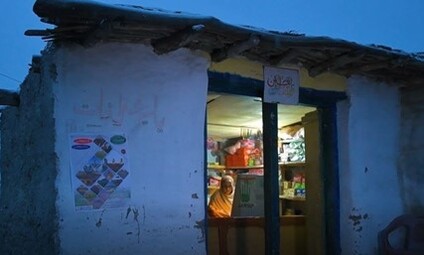 Woman working at a utility store in Bang village. Credit: AKRSP
Woman working at a utility store in Bang village. Credit: AKRSP
The scope of this mini hydro project is very diverse and it has been a blessing for the people of this area. All in all, the scope and impacts of mini hydro are very positive and diverse, and it has had a life changing role for our society.
Tell us about your first encounter with the mini hydro project, and what are your daily responsibilities?
I participated in an interview for the position of a sales officer in the Yadgar Utility Company and was selected. When I started my job, I got the opportunity to interact with people in the mini hydro sector, and also with the community directly on a daily basis.
My daily routine involves selling prepaid electricity units and collecting cash in return. I look after the Vending Point System, where consumers come and top up their prepaid cards in return for electricity. Everyday I meet 7-8 women, who visit the Vending Point System and I guide them in starting their own micro-business.
How does the Vending Point System work and how accessible are they?
The Bang village spans across an area of 16 kilometers and it is divided into four areas. Every person has to travel 1km to reach the Vending Point System.
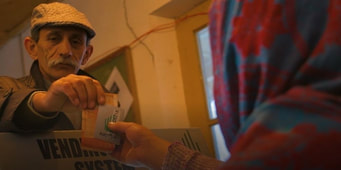 A transaction at the Vending Point System. Credit: AKRSP
A transaction at the Vending Point System. Credit: AKRSP Earning money and contributing to the household makes the women independent. My guidance and support to the women in my valley has helped them start their own household businesses and they are now able to contribute to their household finances. They now have a chance to highlight their local products in the national and international markets too. This includes learning skills, such as the sewing machine and embroidery, that results in beautiful clothes for the women.
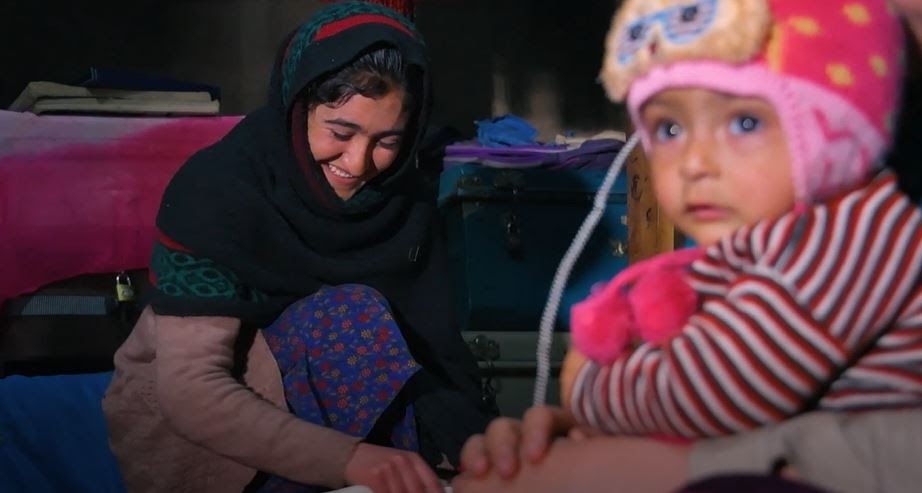 A woman ironing clothes using electricity from the community mini hydro system, while her child looks outside. Credit: AKRSP
A woman ironing clothes using electricity from the community mini hydro system, while her child looks outside. Credit: AKRSP Was there difficulty at the start to convince the women to do business?
Initially, it was a challenge to mobilize them. They were afraid to start their own businesses, as they were afraid of failing and losing their hard earned money. This idea was and is still being complemented by the men, who blame them for failing and hence, they’re a little hesitant now.
AKRSP is providing these women with soft loans now, and this is a great incentive for women to take risks now. This has led to women giving back to their household and has earned them great respect in the community now.
Hasana, did you yourself face any challenges because you're a woman, at any time during university, or education, or during your project?
Being a woman, I had to face the patriarchal attitudes of the people in the valley. I also need to account for the societal pressures and geographical limitations that are imposed on women. Moreover, it was a great challenge to fund my university education and then finding a job after graduating, was another uphill battle that I fought. I now have to keep a fine balance between my job and the household chores.
Furthermore, it was not easy to equip the local community. I mobilized the women and explained to them the dynamics of the area. During my professional life, people would sometimes come in the evening and ask to charge their card, and this is not easy for women to manage. Men would come to the Vending Point Systems after 6 o'clock to top up their cards, and in some instances, I’ve had to go to the point after office hours, and top up their cards.
Do you see both young and old women interested to start their own businesses?
Educated women are more focused on their education, and are trying to get out of the valley in search of better opportunities. Other women who are enrolled in post-graduate degrees, are starting their own businesses too. However, unmarried women are preferring jobs as they have to shift to other areas after getting married, and hence might not be able to work then. This is because they know that after getting married, they might have to relocate to possibly even more remote areas or go into more conservative families - where they might not find a job or be able to work respectively. In this area, we have 10-15 businesses that have been started by women, out of which, 10 have been started by older women.
If the women weren’t involved in this mini hydro project, what do you think would have been the outcome?
Without the women, the result will only be 30% of what we have now. The demand for electricity by women is very high, as they’re using electrical appliances at home. Most importantly, we’re now shareholders in the project, and are a major part of the decision making process. They're part of the discourse now, are negotiating their demands and are discussing important issues such as prices and tariff-designs. They're debating on the frontline now, and this is very encouraging for the women community across our valley.
What impact has the mini hydro project have on you/how has your knowledge and experience developed?
Dealing with a diverse group of people has definitely broadened my view of the world. Moreover, supporting conflict resolution in the community has enhanced my skills greatly. In the beginning, I was a little hesitant to engage with the community, but I adjusted eventually. Now I’m extremely motivated to spread awareness and solve the issues of the community.
What other programs can support women? What kind of solution do you think can help?
Equitable business opportunities, vocational training, and household level decision making are extremely vital in the upliftment of the women in our society. If the women in my valley become more financially independent, then they’ll be able to exercise greater power in the household decision making.
Financial support by the NGOs and the government, women empowerment, vocational training and motivating women to start their own businesses will be extremely essential to uplift the women in our valley. We need to attract them to entrepreneurship, and help them learn the necessary skills to promote their local products and culture to the world.
If you enjoyed this Hidden No More interview, sign up below to receive our newsletter and hear from other women change-makers in the sector!
